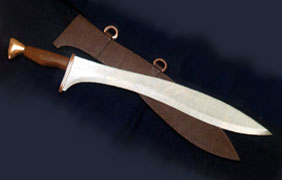A House for My Name
Through King David’s final exhortations to Solomon, David made known to his son that he would be the one to succeed him, and that he would be the one to “build a house for My name” (1 Chron 22:10).

Yet for us as New Testament believers, living on this side of the glory of the Cross, there is no need to collect the materials for the temple of God. We are the temple of God. Listen to the words of Paul to the church at Corinth in 1 Cor 6:19-20 (NKJV):
19 Or do you not know that your body is the temple of the Holy Spirit who is in you, whom you have from God, and you are not your own?
20 For you were bought at a price; therefore glorify God in your body and in your spirit, which are God’s.
Consider, my beloved, that your body is the temple of the Holy Spirit. God dwells within you by His Spirit. He is in us. Wherever we are, He IS!
This changes everything. Our temple worship is different from that of the Old Testament believer. For one, we do not make the annual journey to the Holy City where David did well to establish worship among God’s people.
Our duty is still to glorify God, nonetheless, and we do so with this Holy Spirit Temple. You see, we are not our own. We were bought at a price – the “precious blood, as of a lamb unblemished and spotless, the blood of Christ” (1 Pet 1:19).
While I was an intern in the Spanish Ministry at Grace Community Church during my seminary years, a Spanish-speaking man came, seeking to pray with someone. He seemed to be troubled and anxious and wanting to urgently pray with somebody.
He said nothing of his circumstances but asked if I would pray with him with one condition: that we would go into the sanctuary and pray there in one of the pews. I had a lot of questions about this man, none of which he was willing to answer at the moment, except that he was determined to pray with someone in the sanctuary.
We walked through the office building and went into the sanctuary, where I prayed in general terms asking God to save this man in spite of his circumstances. “Grant him salvation, Lord.” In the end he thanked me and walked away. I never did see that man again.
I was left puzzled for days, and recalling this incident today, I remain puzzled. All I know is that this man was troubled by something he wouldn’t reveal, but for him, praying meant going “to the temple” to pray.
My prayer was and still is that this man would listen to the message of truth, the gospel (Eph 1:13); that God would save this troubled man; that he would know that to be a Christian is to have the Holy Spirit of God dwell within you (Rom 8:9); that he could pray as a true child of God and God would hear him, no matter the place, circumstance, or time.
I wonder how many of us take advantage of His presence in us. Does it change the way we live, our thoughts, our emotions, our actions?
As His people we bring our offerings – our very lives – as a living and holy sacrifice (Rom 12:1-2). We do not travel far to come into His presence. We do not need to storm the red doors of our sanctuary in Garden Valley to be with Him, but we come having confidence “to enter the holy place by the blood of Jesus” (Heb 10:19), making known to Him our praises, our troubles, our thanksgivings. We draw near to Him and live to His glory, remembering that this house, this body, exists for His Name.
How to Examine Yourself – Jonathan Edwards
The Only Desirable Good
The Superior Supernatural Weapon
What comes to mind when you think of the Word of God? Listen to the author of Hebrews describe the Word of God in Hebrews 4:12 –
12 For the word of God is living and powerful, and sharper than any two-edged sword, piercing even to the division of soul and spirit, and of joints and marrow, and is a discerner of the thoughts and intents of the heart.
It is living and powerful. It likens the Word of God to a two-edged sword. In fact, it is described as “sharper than any two-edged
sword” – much sharper than any sword on the face of the earth. That makes it the superior supernatural weapon that has been placed in our hands. Men have died by God’s sovereign providence for you and I to possess the Word of God in our hands. It comes as no surprise that God preserves His Word. “The grass withers, and the flower falls off, but the word of the LORD endures forever” (1 Pet 1:24-25).
But beware, my beloved, the Word of God cuts and it cuts deep. It pierces. It penetrates. It divides. It exposes. It judges; it discerns.
Less you think of a battle sword used by William Wallace, which was said to measure 4 feet 4 inches (132 cm)

in length, this sword is different. The Greek term used here is μάχαιρα (machaira). It was short, much like a dagger. It was this kind of sword that was carried by those who came out to arrest Jesus (Matt 26:47). It was the same kind of sword that was used by Peter to cut Malchus’ right ear off (Jn 18:10). It was commonly used for execution and dreadful bloodshed. It was also the common weapon of choice to carry while traveling, usually in a sheath (cf. Jn 18:11). It was the Apostle Paul who would later make use of this sword to speak of the Sword of the Spirit (Eph 6:12). Small, easily carried, but a powerful spiritual weapon nonetheless. There was even a Jewish saying: “he who utters the Shema is as if he held a two-edged sword.”
To what end? What is this superior supernatural weapon able to do? To pierce “even to the division of soul and spirit, and of joints and marrow, and is a discerner of the thoughts and intents of the heart.” Consider the following words from the Biblical scholar and theologian Brooke Foss Westcott (1825-1901) –
“The Word has unrivaled keenness: it pierces in fact to the most secret parts of man; and that not as an instrument merely but as a judge of moral issues. It is sharper than the most formidable weapon of earthly warfare: it finds its way through every element of our earthly frame: it scrutinizes the affections and thoughts of which our bodily member are the present organs…The Word of God analyses, lays bare, reveals in their true nature, reduces to their final elements, all the powers of man.”
It is to be embraced by the believer for it humbles us with a true knowledge of ourselves and causes us to run to throne of Grace when we are presented with convicting truth. The Word of God not only pierces but penetrates to the very inmost core of the individual, into the innermost heart. It produces conviction, unfolding to us in the light of truth where we are wrong, where we are wicked in our thoughts and desires. This is that “destructive energy” (Brown) of the Word of God. It is the deathful energy of a two-edged sword. Imagine a sharp sword dividing bone and marrow. Talk about intense pain. God’s Word builds us up and tears us down – building up in our weakness and tearing down where we are prideful. The Word of God encourages us, uplifts us, comforts us. Yet it also humbles us, convicts us, brings us to the end of ourselves. It is a dangerous enterprise to be exposed to Scripture.
The Scottish minister and theologian John Brown (1784-1858) rightly said –
“He who is exposed to it is in a situation far more hazardous than he into whose vitals a sharp two-edged sword seems just about to be plunged.”
So why expose yourself to such danger? Why embrace such a superior spiritual sword to do its work in our lives? Because where God cuts and prunes, He promises to heal and produce fruit (cf. Jn 15:2). As the Word of God is living and active, may God revive our hearts to His will and purpose in our lives, never becoming cold or dead in our affections for His powerfully efficient, all-knowing, penetrating Word of God. Pray like the psalmist in Psalm 143:11a –
11 Revive me, O Lord, for Your name’s sake!